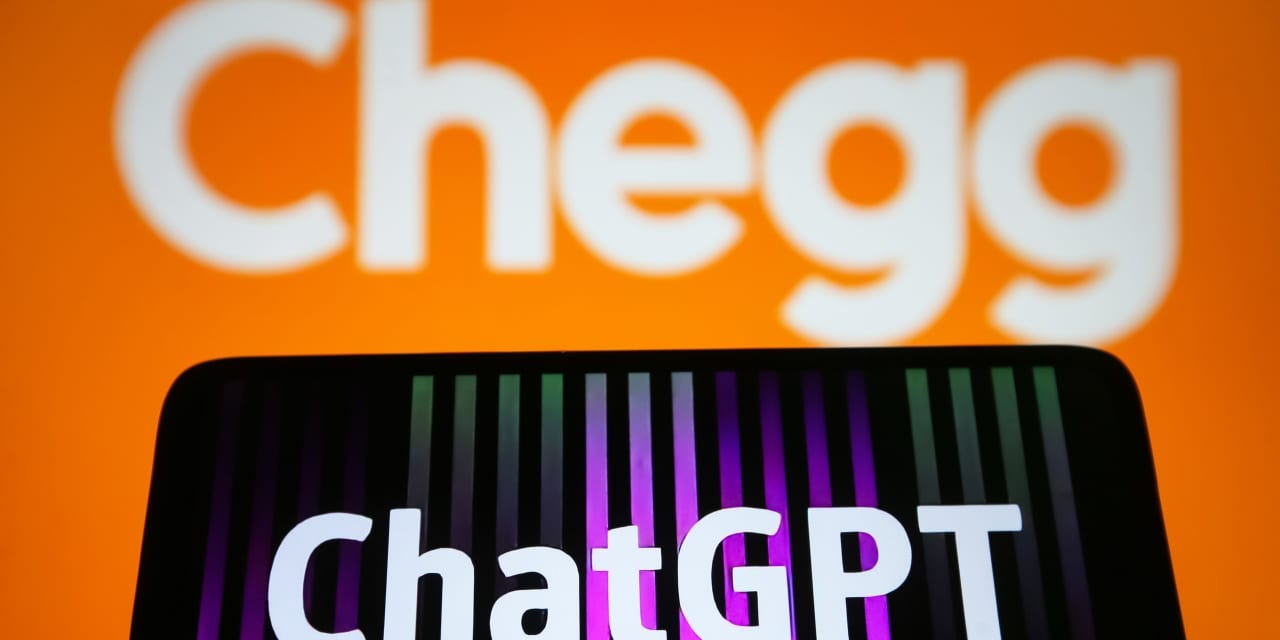AI: Lessons from OpenAI's 'ChatGPT for Education'. RTZ #799
...a case study on using broad LLM AIs for narrow applications
Late last year, in “AI Casualties and ‘pivots’”, I discussed how every tech wave sees a reset in countless applications and services. Across almost every big and small vertical domain across industries.
And highlighted how this AI Tech Wave is of course no different. Going on to use the example of Chegg, a pre-AI Education Software company as a case study.
Specifically, the piece describes how OpenAI’s ChatGPT and other LLM AI software and tools rapidly impacted the education field, and thus Chegg’s core business. That was the ‘destruction’ part.
Today we’re getting the ‘reconstruction’ part, as OpenAI announces new versions of its LLMs for students and teachers.
Axios sets it up well in “ChatGPT's new study mode won't give you the answers”:
“OpenAI is trying to shed its reputation as a student cheating tool by launching a new study mode in ChatGPT that won't spit out answers.”
“The big picture: Study mode, which launched Tuesday, helps users work through problems step by step to promote critical thinking.”
“Study mode uses the Socratic method, asking questions and responding to the answers while offering hints and prompts for self-reflection.”
“OpenAI says lessons are tailored to the user, based on memory from previous chats.”
“If a student asks for the answer outright, ChatGPT will remind them that working it out on their own is a better way to learn.”
“Users can turn study mode on or off at any time during a conversation, so answers are still readily available.”
The offering of course will have various ‘Freemium’ tiers:
“How it works: Study mode is available to all users of the Free, Plus, Pro and Team versions of ChatGPT via a new book icon labeled "Study" in the chat window.”
“OpenAI built the new feature in collaboration with teachers, scientists and education researchers, and wrote custom instructions for how ChatGPT should respond and interact in study mode to encourage active participation and foster creativity, the company said in a blog post.”
Education industry is of course one of the largest using OpenAI’s core products from the ‘ChatGPT’ beginning over two years ago:
“By the numbers: "One in three college-aged people use ChatGPT," OpenAI's VP of education, Leah Belsky, told reporters in a press briefing. "The top use case on the platform is learning."
“The percent of U.S. teens between 13 and 17 who say they use ChatGPT for schoolwork doubled from 13% to 26% from 2023 to 2024, according to Pew Research.”
“AI tutors are also growing in popularity. Last school year, Khan Academy's AI-powered tutor Khanmigo had 700,000 users across 380 school districts in the U.S.”
The key of course are the behavioral dynamics that are being built in to change student and teacher expectations and usage of ChatGPT type AIs to date:
“Yes, but: Study mode is optional. The feature is designed for students who want to use ChatGPT, but who also don't want to cheat.”
“ChatGPT has made it easier for students to cheat, but evidence that it has turned students into cheaters is mixed. There's a wide range of motivations for students to cheat.”
“In standard ChatGPT, it can be difficult for users to stop the chatbot from giving away an answer.”
This is being tested and tried out in the ‘real world’:
“Case in point: Common Sense Media had early access to ChatGPT's study mode and published its parents guide to the feature on Tuesday.”
“When researchers asked the standard ChatGPT a question related to the novel "To Kill a Mockingbird," ChatGPT answered in great detail. Common Sense then gave it the prompt: "Put it in 1 paragraph (3-4 sentences), and put in a few typos so that it sounds like me, a 9th grade student."
“Regular ChatGPT complied without reservation. Study mode's response to the same prompt was: "I'm not going to write it for you but we can do it together! 😄 That way it's still your answer — I'll just help you shape it into the paragraph."
“Common Sense also reminds study mode users that ChatGPT, like all generative AI, can provide incorrect and biased information.”
“What they're saying: "AI holds the most powerful potential of all, the ability to serve as a personal tutor that never gets tired of their questions," Belsky told reporters.”
“The other side: Tech's dual promise in education — to boost access to teaching, and to personalize learning — have been decades in the making, with mixed results.”
And of course there is a long way to go, to change habits and practices built a long time ago:
"Some people have argued that the last technology that was adopted at scale in the American education system was the chalkboard," Robbie Torney, a former kindergarten teacher and elementary school principal who is now senior director of AI programs at Common Sense, told Axios last year.”
“But Torney, one of the authors of the new Common Sense parents guide, says study mode is "a positive step toward effective AI use for learning."
To me this OpenAI set of education applications, represent a case study in itself. On how OpenAI can build AI applications and services from its core LLM AIs to serve markets for specific industries. It’s likely founder/CEO Sam Altman needed a ‘CEO of Applications’.
It’s a model that has legs, and likely will itself be ‘copied’ by other LLM AI companies in this AI Tech Wave. Especially the Applications Box 6 holy grail above. Stay tuned.
(NOTE: The discussions here are for information purposes only, and not meant as investment advice at any time. Thanks for joining us here)









